Are you still suffering from the damaging effects of being raised by a narcissistic mother even as an adult woman? Do you struggle with anxiety, insecurity, and self-doubt due to emotional abuse from your manipulative mother? Adult daughters of narcissistic mothers can struggle their entire lives.
A self-centered and manipulative mother can make you feel invisible and invalidate your sense of self. If you were raised by a narcissistic mother and are struggling with the lingering effects of a toxic upbringing, then there are certain steps you can take to live on your own terms.
Abuse is the only form of love I know
Childhood is so much fun when you are criticized, humiliated, insulted, neglected, manipulated, abused, compared, ignored and isolated by your own mother. This just makes mother’s day even more special for adult daughters of narcissistic mothers.
If you can’t sense the sarcasm, then let me spell it out for you directly – being raised by a narcissistic mother makes you hate yourself and your mother for the rest of your life.
It can screw up your psychological and emotional state and make you addicted to toxic relationships even in your adulthood. So you start chasing toxic men/women and end up in abusive relationships, one after the other.
Related: 24 Characteristics of Narcissistic Mothers
The constant abuse from your romantic partner breaks your heart, mind and body even more. But yet you choose to stay because that’s what you know. Abuse is the only form of love you have known since your childhood. Toxic relationships are what is normal for you.
Healthy, supportive relationship? What the eff is that? I don’t need that nonsense. Give me the toxicity. Give me the abuse. The manipulation. The control. That’s what feels good to me. It helps me to hide all the pain I carry in my broken mind and heart. It helps me to hide all the hatred I have for myself, and for my mother. What will I do with a healthy relationship? Heal myself? Pfft, that stuff is for amateurs.
She wanted to ruin my life and so that is exactly what I will do as an adult. Make the worst decisions and destroy my entire life.
While this may seem like a feasible enough direction for you to take your life towards, going down a spiral will not lead you anywhere. As a daughter of a narcissistic mother, you need to make smarter decisions and heal yourself.
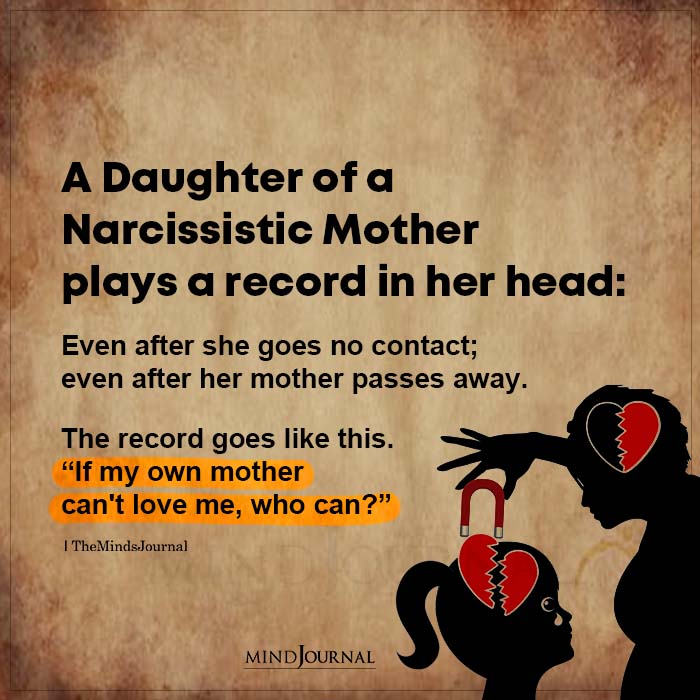
Growing up with a narcissistic mother is painful
The pain of being raised by a mother who thinks you are not good enough can’t be put into words. The pain of being hated by your own mother since your childhood cannot be explained. It breaks your innocent heart and makes you believe that you are worthless even before you have had the chance to grow up.
Growing up with a narcissistic mother can be the absolute worst experience for any woman. Narcissistic mothers are often controlling, manipulative, and emotionally abusive, and they prioritize their own needs and desires over their children’s well-being.
This can result in children feeling neglected, invalidated, and invisible, and can leave lasting scars on their sense of self-worth and confidence.
Grown daughters of narcissistic mothers may struggle with anxiety, depression, and self-doubt, and may have difficulty forming healthy relationships as adults.
When a mother fails to show empathy and compassion to her daughter, it can seriously affect her psychological development and lead to different psychiatric conditions in later life.
The unfortunate truth is, narcissistic mothers and grown up daughters share a toxic dynamic. Being raised by a narcissistic parent can lead to the development of an array of mental health conditions such as
- Stress
- Anxiety
- Depression
- Trauma
- Self-doubt
- Low self-esteem
- People-pleasing and attention-seeking behavior
- Self-blame
- Attachment issues
- Social isolation
- Emotional dysregulation
- A tendency for codependent relationships
According to a 2021 study, “An abusive relationship with a parent can also cause trauma and poor mental health of the child.” The researchers state that narcissistic mothers project their inflated sense of self on their daughters, who may unconsciously internalize it and mimic such toxic behavior.
By overvaluing their children, such mothers can make their daughters believe that they are superior to others, making the daughters develop narcissistic traits as well.
However, when it comes to self-protection, the narcissistic mother will easily abandon their children and “often treat them with aggression/abuse.”
Related: Daughters Of Narcissistic Mothers: 7 Ways They Grow Differently
Studies have also found that narcissism is also closely associated with problem behaviors in adolescence, which can lead to making poor choices and decisions as teens and adults.
No wonder so many adult daughters of narcissistic mothers often find themselves trapped in toxic relationships, where they are either the abuser or the abused.
There is no doubt that grown daughters of narcissistic mothers have a hard time surviving, let alone thriving, for the rest of their lives.
Effects of having a narcissistic mother
When a woman is raised by a narcissistic mother, she may experience a range of challenges and psychological effects that can impact her throughout her life. Here are some of the effects of a narcissistic mother on her daughter –
1. Low self-esteem
A narcissistic mother may undermine her child’s sense of self-worth, leaving the child with feelings of inadequacy, self-doubt, and low self-esteem. This can affect the woman’s confidence in many areas of her life, including her career, relationships, and personal goals.
2. Anxiety and depression
Growing up with a narcissistic mother can lead to a sense of constant criticism and lack of emotional support, resulting in anxiety and depression.
3. Difficulty trusting others
A narcissistic mother may prioritize her own needs over her child’s, leading to a lack of trust in others and difficulty forming healthy relationships.
4. Guilt and shame
A narcissistic mother may use guilt and shame to control her child, leading to feelings of unworthiness and shame even in adulthood.
5. Fear of rejection
Children raised by narcissistic mothers may fear rejection and abandonment, leading to difficulties in forming and maintaining relationships.
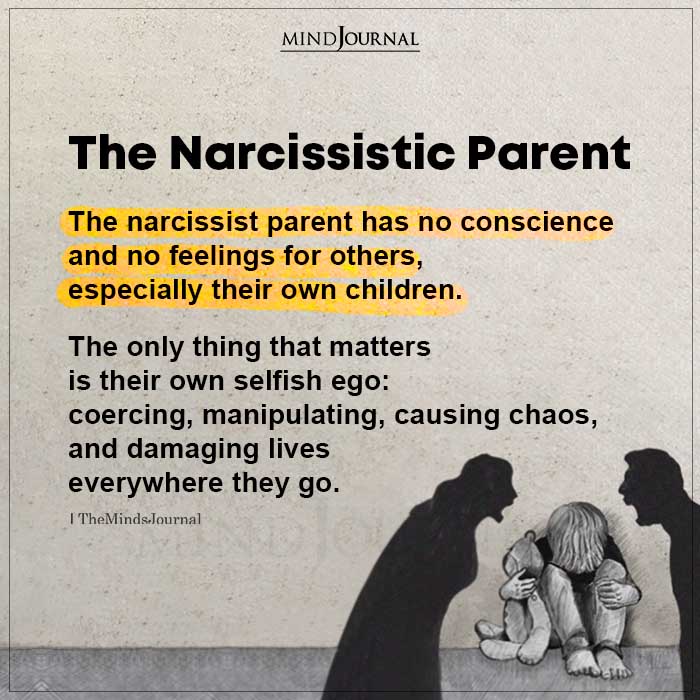
6. Emotional dysregulation
Growing up in a home with a narcissistic mother can lead to difficulties in managing difficult emotions, leading to anxiety, depression, and anger.
7. Perfectionism and people-pleasing
A narcissistic mother may make her child feel that they can only earn love and validation by being perfect and constantly pleasing others, leading to a tendency to prioritize the needs of others over their own. This can lead to anxiety, burnout, and a loss of one’s own identity.
Related: Daughters of Narcissistic Mothers: Why They Are Never Good Enough
8. Difficulty in relationships
Narcissistic mothers may create an environment where their children learn that their own needs and desires are unimportant, leading to difficulty forming and maintaining healthy relationships in adulthood.
Women who have been raised by narcissistic mothers may struggle with trust and intimacy in relationships. They may have a tendency to attract partners who replicate the same patterns of control, manipulation, and emotional abuse that they experienced in childhood.
9. Emotional distress
Narcissistic mothers can be unpredictable and critical, leading to emotional distress and a lack of emotional stability in their children.
10. Lack of boundaries
Narcissistic mothers may not respect her daughter’s boundaries and invade their privacy, leading to a lack of personal autonomy and difficulty in setting and maintaining healthy boundaries in adulthood.
11. Lack of identity
Narcissistic mothers may prioritize their own needs over their children’s, leading to a lack of a sense of self and identity in their daughters.
12. Emotional detachment
Children of narcissistic mothers may become emotionally detached in order to protect themselves from their mother’s emotional manipulation and criticism.
13. Feelings of isolation
Grown daughters of narcissistic mothers may feel isolated and alone due to a lack of emotional support and understanding from their mother. They may feel they lack emotional support as their mother always focused only on their own needs and desires.
14. Difficulty in self-care
Daughters of narcissistic mothers may struggle with self-love, self-care and self-compassion, as they may have learned to prioritize their mother’s needs over their own.
It is important to note that not all individuals who were raised by a narcissistic mother will experience all of these effects, and that healing and growth are possible through therapy, support, and self-care.
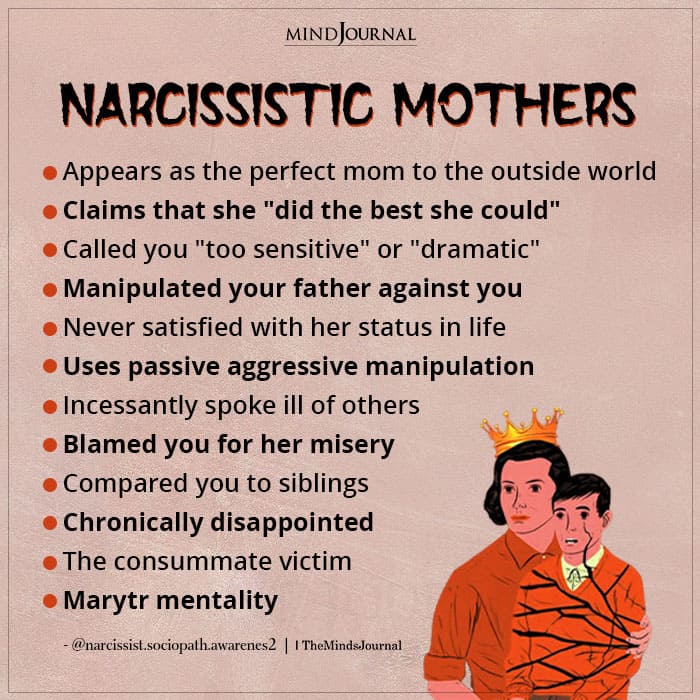
How to heal daughters of narcissistic mothers
Healing from the effects of being raised by a narcissistic mother can be a challenging and ongoing process. However, it is possible to develop the skills and resources needed to move forward and live a fulfilling life.
Here are some strategies and techniques that can be helpful for adult daughters of narcissistic mothers:
1. Acknowledge the problem
The first step in healing is acknowledging that you had a narcissistic mother and that it had a negative impact on your life. Accepting that this was not your fault and that you are not responsible for your mother’s behavior is essential.
2. Educate yourself
Learn about narcissism and its effects on families and relationships. Read books, articles, and online resources that can help you understand the nature of narcissism and how it affects those around it.
3. Seek therapy
Working with a qualified therapist can provide a safe space to process and heal from past traumas and develop coping skills for the present.
Working with a therapist who understands narcissistic abuse can help you process your experiences and emotions. A therapist can also teach you coping skills and provide you with tools to help you navigate difficult situations.
Related: Narcissistic Mother Empath Daughter: 7 Signs You Have The ‘Good’ Daughter Syndrome
4. Practice self-compassion
Be gentle with yourself and practice self-compassion. You are not responsible for your mother’s behavior, and you deserve to be treated with kindness and respect.
Cultivating a kind and understanding relationship with oneself can be a powerful tool in recovering from the negative effects of narcissistic parenting.
5. Develop healthy boundaries
Learning to set and maintain boundaries with others, including the narcissistic mother, can be an important step in protecting one’s emotional well-being.
It is important to understand that your needs and feelings are just as valid as your mother’s. Set clear limits on what you will and will not tolerate and stick to them.
6. Focus on self-care
Taking care of yourself is crucial in healing from the effects of narcissistic abuse. Focusing on your physical, emotional, and spiritual needs is crucial in building resilience and promoting healing. Make time for yourself and engage in activities that bring you joy and fulfillment.
7. Engage in mindfulness practices
Mindfulness-based techniques, such as meditation and yoga, can help cultivate present-moment awareness, reduce stress & anxiety, and increase emotional regulation.
8. Practice assertiveness
Assertiveness skills can help adult daughters of narcissistic mothers communicate their needs and boundaries in a clear and respectful manner.
9. Build a support network
Surrounding oneself with people who are supportive, understanding, and validating can help counteract the negative effects of narcissistic parenting.
Joining a support group or connecting with others who have gone through similar experiences can help you feel less alone and provide you with a safe space to share your thoughts and feelings.
10. Let go of the need for approval
Growing up with a narcissistic mother can create a deep need for approval and validation from others. Learning to let go of this need and validate yourself can help you feel more empowered and self-reliant.
11. Learn to validate yourself instead
Growing up with a narcissistic mother can leave you feeling like your thoughts and feelings are not valid. Learning to validate yourself and trust your own intuition can help you build confidence and self-esteem.
12. Challenge negative thoughts and beliefs
Identifying and challenging negative self-beliefs that developed as a result of narcissistic parenting can be an important step in promoting healing and growth.
Related: Narcissistic Mother: 5 Signs Your Mother Is A Narcissist
13. Set realistic expectations
Letting go of unrealistic expectations for oneself and others can help reduce anxiety and promote a sense of self-acceptance.
14. Foster positive self-talk
Using kind and supportive self-talk can help counteract the negative inner voice that may have developed as a result of narcissistic parenting.
15. Practice forgiveness
Forgiveness, both of oneself and others, can be a powerful tool in releasing the past and moving forward.
16. Engage in creative expressions
Art, music, and writing can be a powerful way to process emotions and promote healing. Expressing yourself creatively can allow you to acknowledge and release suppressed and difficult emotions.
17. Seek out positive role models
Identifying and learning from positive role models, whether in one’s personal life or through books and media, can be an important step in developing healthy relationships and a positive self-image.
18. Take responsibility for one’s own happiness
Recognizing that one has the power to choose their own happiness and taking steps to create a fulfilling life can be a powerful antidote to the feelings of powerlessness that may result from narcissistic parenting.
19. Cultivate gratitude
Practicing gratitude for the positive aspects of one’s life can help promote a sense of perspective and resilience in the face of challenges.
Remember, healing from the effects of a narcissistic mother is a process, and progress may be slow and nonlinear. However, with commitment, self-compassion, and support, it is possible to recover from the past and move forward with a sense of resilience, confidence, and self-worth.
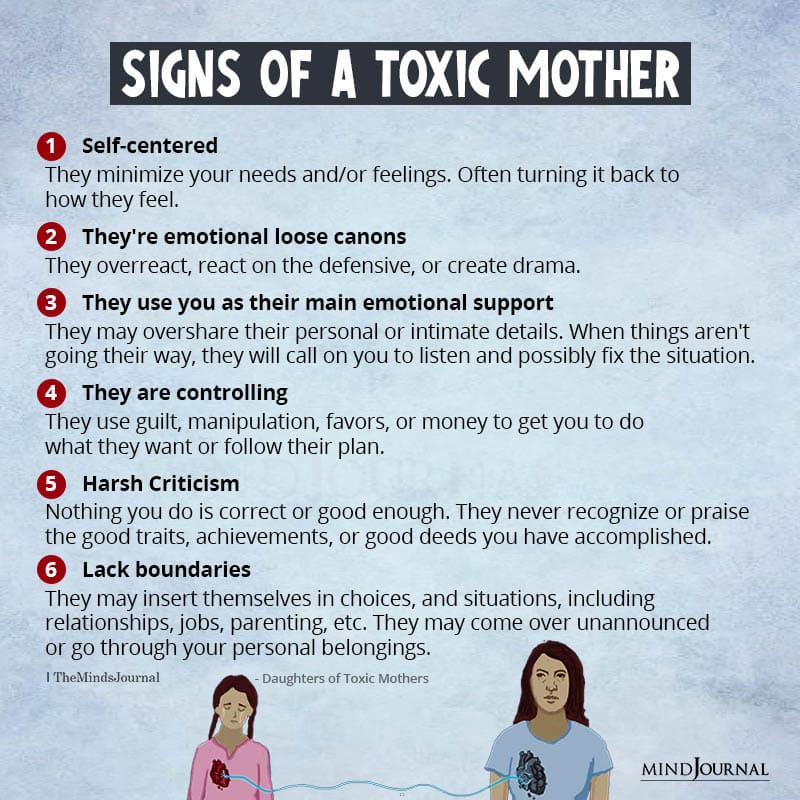
Take control of your life
Growing up with a narcissistic mother can have a profound impact on a daughter’s psychological and emotional well-being. The effects of this type of upbringing can be long-lasting and pervasive, affecting many aspects of adult life. However, with the right support and guidance, healing is possible.
By understanding the dynamics of narcissism and developing self-compassion, self-care, and healthy boundaries, daughters of narcissistic mothers can begin to heal and move forward with confidence, building the life they deserve.
It may not be an easy journey, but it is one that can lead to a brighter future.
Related: 63 Most Commonly Used Phrases By Narcissistic Mothers
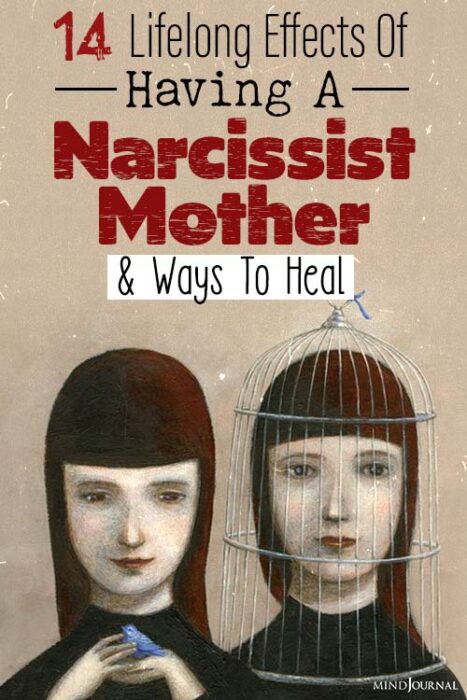
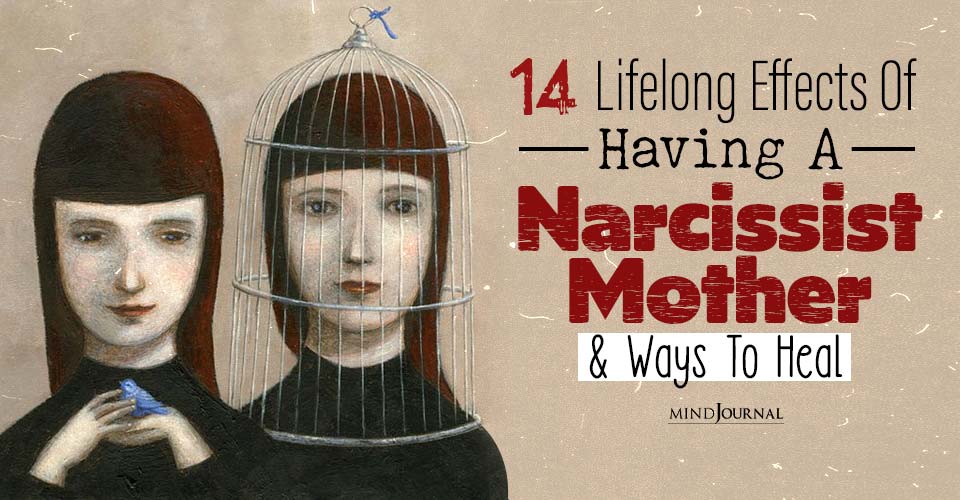



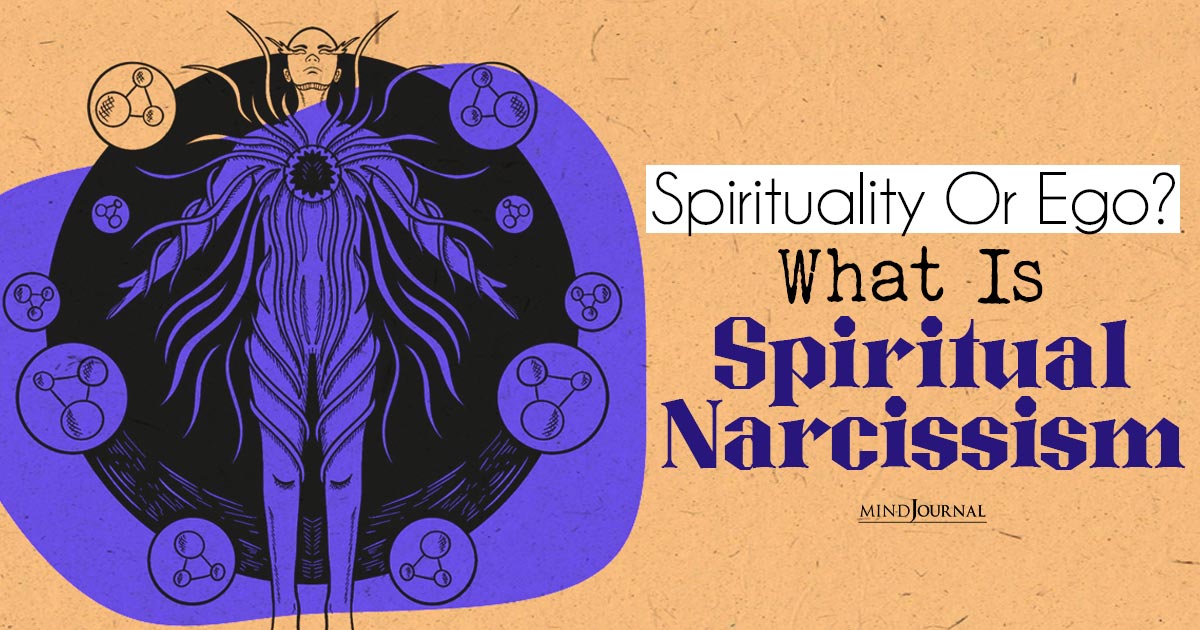
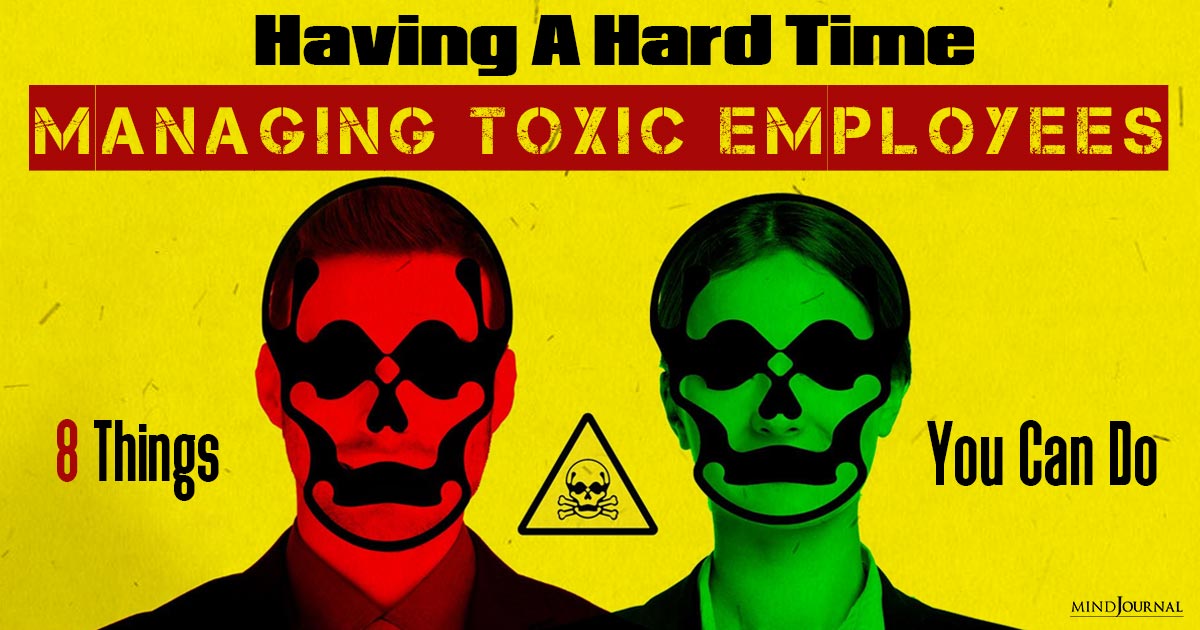


Leave a Reply
You must be logged in to post a comment.